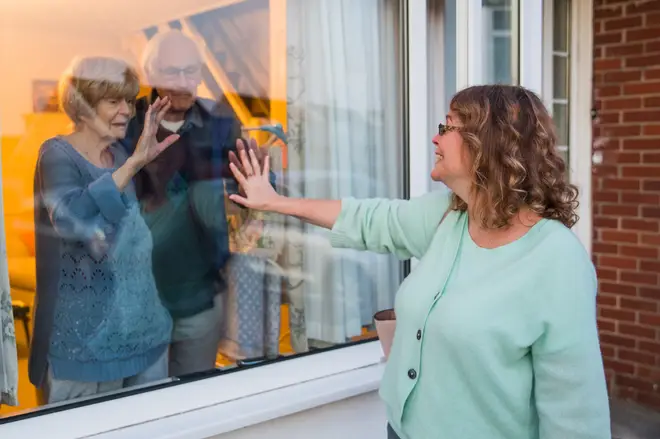
Henry Riley 10pm - 1am
13 June 2020, 14:10

From today, single households in England will be able to form a “support bubble” with one other home – but how does it work and what are the rules you should keep to?
People in England can form "support bubbles" with other households from today to help those who are lonely as coronavirus lockdown measures are eased.
The new relaxation of the lockdown rules will mean that adults who live alone – or single parents with children under 18 years old – will be able to merge with another household.
This can be anywhere in England, however some local health officials have suggested that people keep as local as possible to avoid the spread of the virus.
At the moment, officials say it is too soon for people who are shielding to be able to join support bubbles.
Once people have selected their bubble partner, they are being asked to act as one unit – and will be treated as a single household by police when it comes to lockdown-related issues.
If one member of either household gets coronavirus symptoms, all members of both households in the bubble must self-isolate for 14 days.

One person households can form support bubble with one other household
The significant change for many will be the removal of social distancing rules for the bubbled households – those eligible can now visit each other’s homes indoors, stay overnight and will not have to keep two metres apart as before.
Government officials believe this will come as a welcome change for people living alone – particularly the elderly - who can now form a bubble with their sons, daughters and grandchildren.
However, if the grandparent has two or more grandchildren in separate homes, they will have to choose between them.
If both grandparents are still living together, they will not be able to see their grandchildren just yet and could only see a friend or family member who lives alone.

How will support bubbles work?
The move will be welcome for many couples who will now be able to visit each other for the first time since lockdown on 23 March.
However, the new rules only apply if at least one partner lives alone - if both people share a home with others they still cannot see each other.
If several people share a flat or house and all have partners who live alone, only one will be able to see their partner, which could lead to some heated conversations.
This aspect of the new rules will affect large numbers of young people living in towns and cities – especially students who have decided to stay in large house shares throughout the lockdown.
Children of separated parents – who travel between each parents’ homes – will be able to continue doing so, meaning that children could potentially be in two bubbles - one for each parent.
Downing Street has acknowledged not everyone will benefit from the change, although officials have hinted a further loosening of the rules could come soon if the number of new infections continues to decline.